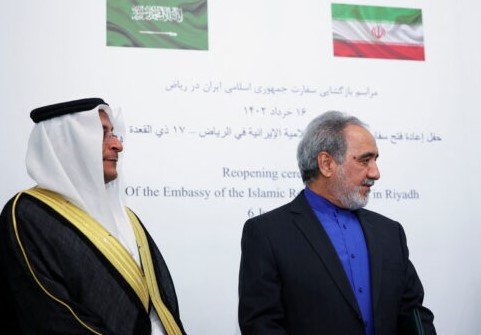Iran’s Foreign Minister Abbas Araghchi announced this week that Tehran has begun steps to reestablish diplomatic ties with both Bahrain and Egypt. After years of frosty relations and broken ties, the recent thaw in regional politics is opening new doors — but the road ahead is anything but straightforward.
The announcement comes in the wake of a landmark 2023 agreement between Iran and Saudi Arabia, brokered in Beijing, which ended years of hostility and restored embassies. Now, Tehran hopes that momentum will extend to its neighbors, signaling a potentially significant realignment in the Middle East’s diplomatic landscape.
Diplomatic Ties with Bahrain: A Delicate Balancing Act
Iran’s attempts to restore relations with Bahrain represent a cautious but hopeful effort. The Gulf kingdom cut ties with Tehran back in January 2016 after a wave of protests in Iran saw its diplomatic mission in Manama attacked. The unrest was triggered by the execution of Sheikh Nimr Baqir al-Nimr, a prominent Shia cleric, which fueled already tense sectarian and political divides.
Now, with Riyadh and Tehran back on speaking terms, Bahrain appears to be softening its stance. The Bahraini Ministry of Foreign Affairs confirmed ongoing coordination with Iran, aimed at reopening diplomatic channels.

Araghchi, who visited Manama in October last year, spoke with King Hamad about these efforts and broader regional developments. The discussions notably touched on the escalating violence in Gaza and Lebanon — showing that regional security concerns remain a key driver for diplomatic engagement.
-
Restoring ties with Bahrain is complicated by Bahrain’s close security and political alignment with Saudi Arabia and the US.
-
Sectarian divisions still cast a long shadow over negotiations.
-
Yet, mutual economic interests and regional stability concerns could push both sides toward a breakthrough.
The tricky part? Both countries have been locked in decades of suspicion and rivalry. But with Iran and Saudi Arabia opening embassies again, a diplomatic ripple effect is expected. If Bahrain follows suit, it would mark a significant shift in Gulf geopolitics — possibly easing tensions that have long divided the region.
Egypt and Iran: Gradual Thaw After Four Decades of Silence
The Iran-Egypt relationship is a different beast altogether. Diplomatic ties were severed way back in 1980, shortly after Iran’s 1979 Islamic Revolution and Egypt’s peace deal with Israel. The split was deep and symbolic, tied to ideological divides and the fallout from regional power struggles.
But cracks in this frozen relationship began to show after Egypt’s 2011 revolution. With the fall of Hosni Mubarak, both countries started to inch closer in unofficial ways. Since then, diplomatic exchanges, though limited, have been warming.
Araghchi highlighted that there have been several high-level meetings between Iranian and Egyptian leaders. Presidents and foreign ministers have held multiple talks and even maintain regular phone calls — a far cry from the decades of silence before.
It’s worth noting:
-
Egypt’s cautious warming is largely driven by pragmatic concerns, including regional security and economic cooperation.
-
Both nations share worries over escalating conflicts in Gaza and Lebanon.
-
However, the shadow of Egypt’s historic alliance with Israel and Washington’s influence means full normalization could take time.
It’s a slow dance. Both sides seem willing to talk but are careful not to rush. The recent spike in regional instability, including the ongoing Gaza crisis, has ironically created common ground for dialogue.
What’s Driving This Diplomatic Thaw?
At first glance, these diplomatic moves might seem like political window dressing. But they’re more than that — they’re a reflection of shifting realities in the Middle East.
Several factors are at play:
-
The Iran-Saudi Deal: This landmark agreement has reshaped regional dynamics. When two of the Middle East’s biggest rivals shake hands, others tend to follow.
-
Shared Concerns About Regional Conflicts: From Gaza to Lebanon, escalating violence threatens stability. Countries increasingly see dialogue as a way to manage crises.
-
Economic and Strategic Interests: Opening up relations could lead to trade opportunities and joint security cooperation.
-
Global Geopolitics: With China and Russia growing their influence in the region, Middle Eastern countries are hedging their bets and recalibrating alliances.
This is a new chapter — one where old grudges are tested against fresh realities.
The Challenges Still Ahead
Rebuilding trust won’t be easy. Years of hostility have left deep scars and mutual suspicion.
Still, there’s a palpable sense that the region may be inching toward a less fractured future. Whether that’s wishful thinking or the start of something real remains to be seen.
In any case, these developments remind us that Middle East politics never stand still. They twist and turn — surprising and unsettling in equal measure.
